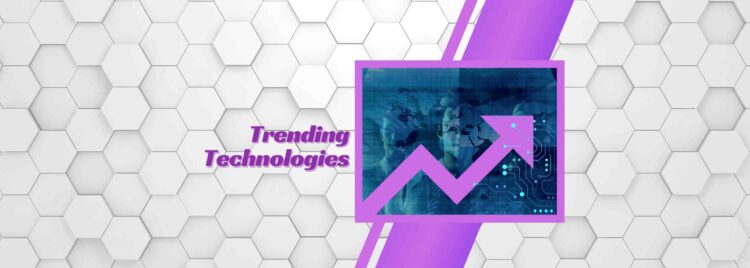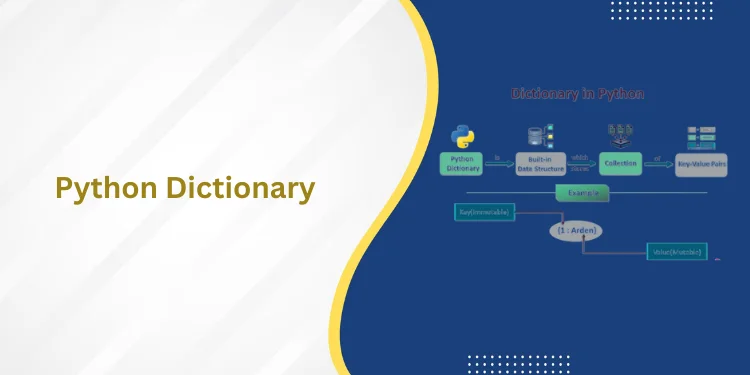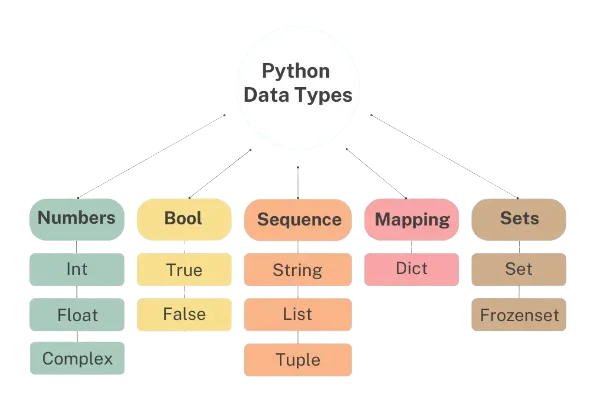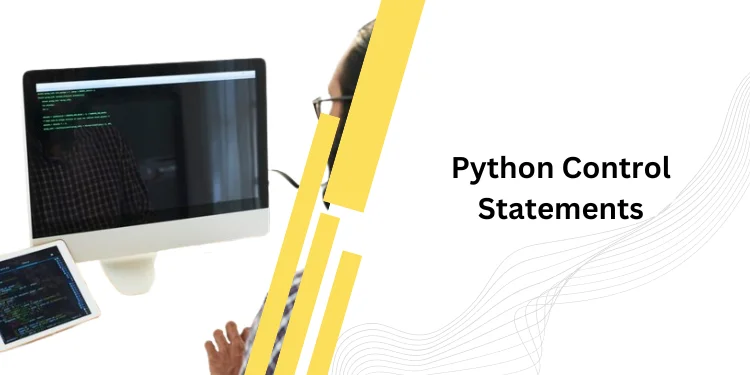Table of Contents
ToggleIntroduction
Technology is constantly evolving and the pace of change has accelerated in recent years, trending technologies, bringing new innovations and trends that are reshaping industries and society as a whole. Some of the most prominent and promising trends in the world of tech today include artificial intelligence, blockchain, internet of things, augmented and virtual reality, edge computing, quantum computing, 5G technology, cybersecurity, and cloud computing.
Artificial intelligence, or AI, is rapidly transforming industries such as healthcare, finance, and transportation with its ability to process vast amounts of data and learn from it to improve decision-making and outcomes. Blockchain technology is revolutionizing the way we think about security and trust in digital transactions, providing a decentralized, transparent, and tamper-proof system.
The internet of things, or IoT, is connecting devices and creating a network of interconnected systems that can improve efficiency, reduce costs, and create new business models. Augmented and virtual reality, or AR/VR, are transforming entertainment and education by creating immersive and interactive experiences for users.
Edge computing is bringing computation and data storage closer to the source, enabling faster processing and reducing latency. Quantum computing is unlocking new possibilities for solving complex problems that were previously impossible to tackle with classical computing methods. 5G technology is bringing faster speeds and lower latency to mobile networks, enabling new applications such as autonomous vehicles and remote surgery.
Cybersecurity is becoming increasingly important as we rely more and more on digital systems and data. Cloud computing is providing scalable and flexible solutions for businesses of all sizes, enabling them to store and process data and run applications without having to invest in expensive infrastructure.
Overall, these trending technologies are shaping the future of business, society, and the world as a whole, and staying up to date with the latest developments and innovations is essential for anyone working in the tech industry.
Artificial Intelligence

Artificial Intelligence (AI) is a rapidly growing technology that involves creating intelligent machines that can learn, reason, and perform tasks that traditionally require human intelligence. With its ability to process vast amounts of data and learn from it, AI is revolutionizing industries across the board, from healthcare to finance, transportation, and beyond. AI has become super famous these days, it has grabbed the attention of the whole world and created a way in trending technologies list.
In healthcare, AI is being used to analyze medical images and data to improve diagnosis and treatment outcomes. AI-powered chatbots are also being used to provide patients with personalized support and advice. In finance, AI is being used to detect fraud and improve risk management, while in transportation, AI-powered systems are being used to optimize routes and improve safety.
AI is also being used in the manufacturing industry to improve efficiency and reduce costs by predicting maintenance needs, optimizing production schedules, and automating routine tasks. In retail, AI is being used to analyze customer data to provide personalized recommendations and improve the shopping experience.
In addition to its practical applications, AI is also enabling new and innovative solutions to some of the world’s most pressing problems, such as climate change and healthcare accessibility. AI-powered systems are being used to improve energy efficiency and reduce carbon emissions, while also providing better access to healthcare services in remote and underserved areas.
Overall, AI is revolutionizing industries and transforming the way we live and work. As the trending technologies continue to evolve and become more advanced, the possibilities for its applications are endless, and it is becoming an increasingly important part of our daily lives.
Blockchain

Blockchain is a distributed ledger technology among today’s trending technologies that allows for secure, transparent and immutable transactions. It is a decentralized system that eliminates the need for intermediaries such as banks, governments or other third parties to verify and authenticate transactions.
This is among those trending technologies that works by creating a chain of blocks that record and verify transactions in a network. Each block contains a set of transactions that are verified and encrypted using complex mathematical algorithms. Once a block is added to the chain, it cannot be altered or deleted, making it virtually tamper-proof.
Blockchain technology offers several benefits, including enhanced security, improved transparency, and increased efficiency. It is being used in a variety of industries such as finance, healthcare, and supply chain management, to enable secure and efficient transactions.
With its ability to create secure and transparent digital transactions, blockchain technology is redefining the way we think about security and trust in the digital age. Its potential applications are limitless, and it is expected to play a significant role in shaping the future of the global economy.
Internet of Things
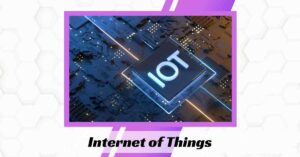
The Internet of Things (IoT) is among trending technologies that connects devices and objects to the internet, allowing them to communicate and exchange data with each other. This creates a network of smart devices that can be controlled and monitored remotely, enabling more efficient and convenient systems.
IoT technology is being used in a variety of applications, such as home automation, industrial monitoring, and smart cities. In home automation, IoT devices can be used to control and monitor heating and cooling systems, lighting, and security cameras. In industrial monitoring, IoT devices can be used to monitor machinery and equipment to improve efficiency and reduce downtime. In smart cities, IoT devices can be used to monitor traffic patterns and control streetlights to improve safety and reduce congestion.
IoT technology offers several benefits, including increased efficiency, reduced costs, and improved safety and security. As trending technologies continue to evolve and become more advanced, the possibilities for its applications are endless, and it is expected to play an increasingly important role in shaping the future of technology and society.
Augmented Reality and Virtual Reality
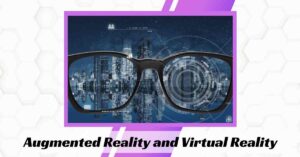
Augmented reality (AR) and virtual reality (VR) are technologies that enable users to experience immersive digital environments. AR overlays digital information onto the real world, while VR creates a completely simulated environment that users can interact with.
AR technology is being used in a variety of applications, such as gaming, education, and marketing. In gaming, AR can be used to create interactive experiences that blend the real and digital worlds. In education, AR can be used to create interactive learning experiences that engage students and make learning more fun. In marketing, AR can be used to create interactive advertisem
ents that engage customers and increase brand awareness.
VR technology is being used in a variety of applications as well, such as gaming, education, and healthcare. In gaming, VR can be used to create immersive and realistic gaming experiences. In education, VR can be used to create virtual field trips and simulations that allow students to learn in a safe and controlled environment. In healthcare, VR can be used to create simulations that allow doctors to practice procedures and surgeries in a safe and controlled environment.
Both AR and VR offer several benefits, including increased engagement, improved learning outcomes, and enhanced customer experiences. As trending technologies continue to evolve and become more advanced, the possibilities for its applications are endless, and it is expected to play an increasingly important role in shaping the future of technology and society.
Edge Computing
Bringing computation and data storage closer to the source:
Edge computing is a technology that brings computation and data storage closer to the source of the data, rather than relying on a centralized data center. This allows for faster processing and response times, and reduces the amount of data that needs to be transmitted to a remote location.
Edge computing, one of the trending technologies, is being used in a variety of applications, such as Internet of Things (IoT) devices, autonomous vehicles, and smart cities. In IoT devices, edge computing can be used to process data from sensors and devices in real-time, without the need to transmit the data to a remote data center. In autonomous vehicles, edge computing can be used to process data from sensors and cameras in real-time, allowing for faster and more accurate decision-making. In smart cities, edge computing can be used to process data from sensors and cameras in real-time, enabling faster and more efficient management of city resources.
Edge computing offers several benefits, including faster processing times, improved reliability, and reduced network congestion. As trending technologies continue to evolve and become more advanced, the possibilities for its applications are endless, and it is expected to play an increasingly important role in shaping the future of technology and society.
Quantum Computing
Unlocking new possibilities for solving complex problems:
Quantum computing, one of the trending technologies, is an emerging field that has the potential to revolutionize the way we solve complex problems. Unlike classical computing, which relies on binary bits that can only represent two values (0 or 1), quantum computing uses quantum bits (qubits) that can represent multiple values simultaneously. This allows quantum computers to perform certain types of calculations much faster than classical computers.
Quantum computing has applications in a wide range of fields, including cryptography, chemistry, and optimization. In cryptography, quantum computers can be used to break certain types of encryption that are currently considered to be secure. In chemistry, quantum computers can be used to simulate complex molecular systems, which can help researchers design new drugs and materials. In optimization, quantum computers can be used to solve complex optimization problems that are difficult or impossible for classical computers to solve.
While quantum computing is still in its early stages, there has been significant progress in recent years, and several tech giants, such as IBM, Google, and Microsoft, are investing heavily in the development of quantum computing technology. As the technology continues to advance, it is expected to unlock new possibilities for solving some of the world’s most pressing problems.
5G Technology
The next generation of mobile networks with faster speeds and lower latency:
5G technology is the next generation of mobile networks, promising faster data transfer speeds, lower latency, and increased network capacity. With 5G, users can experience peak download speeds of up to 20 gigabits per second, which is nearly 100 times faster than the current 4G technology.
5G technology, one of the trending technologies, uses higher frequency bands than previous generations, which allows for more data to be transmitted at a faster rate. This increased speed and capacity will enable the development of new technologies and services, such as autonomous vehicles, virtual and augmented reality, and smart cities.
In addition to faster speeds, 5G technology also offers lower latency, which is the time it takes for data to travel between devices. This lower latency will enable real-time communication and faster response times, which is critical for applications such as remote surgery and autonomous vehicles.
While 5G technology, one of the trending technologies, is still in its early stages, it has the potential to revolutionize the way we live and work. However, the deployment of 5G networks will require significant investment in infrastructure, and there are also concerns about the potential health effects of the higher frequency radiation used by 5G technology. As such, it is important to carefully consider the benefits and risks of 5G technology as it continues to evolve.
Cybersecurity
Protecting data and systems from threats in an increasingly connected world.
Cybersecurity among today’s trending tech is the practice of protecting electronic data and systems from unauthorized access, theft, damage, or disruption. As the world becomes increasingly interconnected through the internet and other digital technologies, cybersecurity has become a critical concern for individuals, businesses, and governments alike.
The threats to cybersecurity come in many forms, including viruses, malware, phishing attacks, and hacking attempts. These threats can cause significant damage to data and systems, leading to lost revenue, reputation damage, and even legal liability.
To protect against these threats, cybersecurity professionals use a variety of tools and techniques, including firewalls, encryption, and intrusion detection systems. They also educate users on best practices for secure online behavior, such as creating strong passwords, avoiding suspicious emails and links, and regularly updating software.
As trending technologies continue to evolve, so do the threats to cybersecurity. To stay ahead of these threats, cybersecurity professionals must constantly adapt and update their skills and knowledge. This requires a commitment to ongoing education and training, as well as collaboration across industries and government agencies to share information and resources.
In short, cybersecurity is critical for ensuring the privacy, security, and stability of our increasingly connected world. Hence, it is regarded as one among the trending technologies today.
Cloud Computing
Providing scalable and flexible solutions for businesses of all sizes:
Cloud computing has gained a wide space in trending technologies today. It is a technology that enables users to access computing resources over the internet. Rather than relying on local hardware and software, users can tap into a network of remote servers to store, manage, and process data.
One of the key benefits of cloud computing is scalability. Businesses can easily scale up or down their computing resources to meet changing needs, without the cost and complexity of managing their own hardware and software. Cloud computing also provides flexibility in terms of access to data and applications, allowing users to work from anywhere and on any device with an internet connection.
Cloud computing services are typically provided by third-party vendors, who offer a range of options to suit different business needs. These options can include Software as a Service (SaaS), Platform as a Service (PaaS), and Infrastructure as a Service (IaaS), each of which provides diff
erent levels of control and customization.
In addition to scalability and flexibility, cloud computing also offers cost savings by reducing the need for on-premise hardware and software, and by allowing businesses to pay only for the resources they use. It also provides improved reliability and disaster recovery capabilities, as data is stored and backed up in multiple locations.
As businesses continue to adopt cloud computing, it is becoming increasingly important among trending tech for enabling innovation and growth. However, it is important for businesses to carefully evaluate their needs and choose a provider that offers the right level of security, reliability, and performance.
Conclusion
In conclusion, there are several trending Tech that are driving innovation and transforming the way we live, work, and communicate. These trending technologies include artificial intelligence, blockchain, the Internet of Things, augmented and virtual reality, edge computing, quantum computing, 5G technology, cybersecurity, and cloud computing.
Each of these trending technologies offers unique benefits and challenges, and businesses and individuals must carefully evaluate their needs and goals before adopting them. While some of these technologies are still in their early stages, they have the potential to revolutionize industries and create new opportunities for growth and success.
As the world becomes more connected and digital, it is important to stay up-to-date on the latest trends and advancements in technology. By embracing new trending technologies and leveraging their benefits, businesses can gain a competitive edge and position themselves for long-term success.
Frequently Asked Questions
What are the most popular trending technologies currently in use?
Some of the most popular trending technologies currently in use are artificial intelligence, blockchain, the Internet of Things, augmented and virtual reality, edge computing, quantum computing, 5G technology, cybersecurity, and cloud computing.
How can businesses benefit from adopting these trending technologies?
By adopting these trending technologies, businesses can improve efficiency, reduce costs, enhance security, gain valuable insights, and create new opportunities for growth and success.
What are some challenges associated with implementing these trending technologies?
Some challenges associated with implementing these trending technologies include high costs, lack of expertise and skills, potential security risks, and resistance to change from employees or stakeholders.
What are some of the ethical considerations associated with using emerging and trending technologies like artificial intelligence or blockchain?
Ethical considerations associated with using emerging and trending technologies like artificial intelligence or blockchain include issues around data privacy, transparency, bias, and accountability.
How can individuals keep up-to-date with the latest trends and advancements in technology and know about the trending technologies?
Individuals can keep up-to-date with the latest trends and advancements in trending technologies by attending industry events, reading tech blogs and publications, following tech experts on social media, and taking online courses or certifications.

